by Marie Snyder
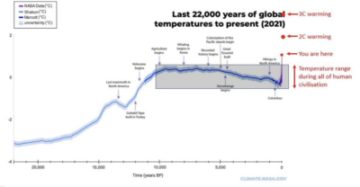 The season finale of The Last of Us sets up a great deontological v. teleological conundrum with the big question (tiny spoiler), which ends up being an episode-long trolley problem: Is it right to kill one person if doing so could save multitudes?
The season finale of The Last of Us sets up a great deontological v. teleological conundrum with the big question (tiny spoiler), which ends up being an episode-long trolley problem: Is it right to kill one person if doing so could save multitudes?
In a utilitarian view, of course we should sacrifice one person to potentially save all of humanity. It would be absurd not to see this and ensure the safety of all! But it doesn’t pass the categorical imperative sniff test. We can’t support intentional harm coming to people, any people, no matter how few, even if it will help many others.
Kant’s famous rule: “I am never to act otherwise than so that I could also will that my maxim should become a universal law,“ so killing a person to help others is necessarily wrong. It’s not a numbers game since “the moral worth of an action does not lie in the effect expected.” And we have to treat each person as an end in themselves, never as a means to an end.
Or, as the great Mitchell & Webb make clear, killing some to save others is just plain wrong “because it’s offensive and evil.”
And people will do absolutely anything to save the children they love if they turn out to be the sacrificial lambs in question.
Fortunately, the current issues facing us don’t force us to choose. We can help our children and the world at once, so that should be easy, right?!? Unfortunately, our drive to protect our kids is often short sighted. Life is not as cut and dried as a good zombie-like show. We often want our children to be happy today even if it means they end up suffering later.
We’re pretty good at not letting kids have candy for dinner because we know they’ll feel sick in the morning or soon be depleted of vitamins. We don’t let our little ones smoke or drink for the same reasons. The consequences are close enough for it to have a direct effect on our risk assessment. But we’re not nearly as good at keeping them masked to avoid Covid because we want them to better enjoy the day.
On a grand scale, that short-sightedness is causing economic upheaval from a sudden drop in the labour force from mass disabling, so the great solution in some areas is to let kids go to work!! Who needs all of high school anyway? And suddenly, some places seem to be okay with letting kids work in meat packing plants by 14. I mean, we’re not taking to the streets over it. And then they’ll likely die off well before 65, so no worries about maintaining that pension fund!
Is that the idea? How did we get here?
Our children are being sacrificed for the good of the economy, to keep the system running smoothly, rather than legislate protections like those advocated by the Delphi Consensus: ensuring clean air in all public buildings with at least six air changes/hour, posted CO2 monitors, and Upper Room Ultraviolet Germicidal Irradiation (UVGI), and an education program to help everyone understand how filtration works in rooms so HEPAs and Corsi-Rosenthal boxes aren’t shoved in a corner where they’re rendered useless. Then we would just need masks until we’re able to guarantee clean air indoors, all of which could be done in a matter of months if the powers that be decide it might be worth the cost. But they won’t.
And there’s worse.
The International Panel on Climate Change (IPCC) issued a report on the first day of spring, and I’m pleased at least it still gets in the media. The report is long and a bit of an effort to read, so they produce a summary, but be aware that while the report is independent, the summary is influenced by various governments, and many have noticed there’s significantly less discussion of fossil fuel reduction there!
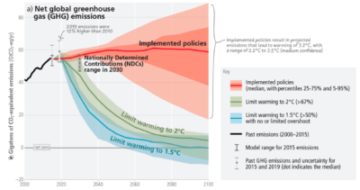 They both say that global GHGs continue to increase. Remember in 2018 when they said we have 12 years to cut our GHGs in half if we hope to stay below 1.5°C above pre-industrial levels because at just half a degree more than that, 2°C, we’ll face significantly worse water and food scarcity and lose twice as many insects and almost all the coral reefs. Time went on and people kept chanting that 12 year goal, even as years passed. Now we’re down to seven years, and our numbers aren’t budging.
They both say that global GHGs continue to increase. Remember in 2018 when they said we have 12 years to cut our GHGs in half if we hope to stay below 1.5°C above pre-industrial levels because at just half a degree more than that, 2°C, we’ll face significantly worse water and food scarcity and lose twice as many insects and almost all the coral reefs. Time went on and people kept chanting that 12 year goal, even as years passed. Now we’re down to seven years, and our numbers aren’t budging.
Covid and climate change are strikingly similar issues.
They both harbour profound misconceptions from obfuscation of facts, both by misfortune and by design. I’ve had grade 12 students, about to go to uni, insist climate change is all about littering because they’ve interpreted pollution as scraps of paper blowing around instead of GHGs in the air. Similarly, many think Covid is over, or masks are deadly, or we’re only contagious when we have symptoms, all of which are demonstrably untrue, but the disinformation and muddled explanations about it can easily lead to these conclusions. And I understand that it can be hard to believe how a tiny virus or a tiny increase in temperature can harm us. Yet about 1% of people have Long Covid now, and hovering at just 1.1°C over has caused the Arctic sea ice to melt. This is mean global temperatures, and, as explained by Professor Will Steffen here, we could see a 4°C rise by the end of this century if we maintain business as usual. The difference between our temperature now and the last ice age is just 4°C! He advises that we need a wartime effort to make getting GHGs down the primary political and economic target.
They’re both also problems that we had the knowledge necessary to do a better job of preventing: It was 1856 when American physicist Eunice Foote shared a paper called “Circumstances affecting the heat of the sun’s rays” at the Advancement of Science annual meeting, demonstrating the interactions of the sun’s rays on different gases and the implications. John Tyndall wrote about the same thing three years later and got most of the credit for it. And it was back in May 2020 when a paper identified “airborne transmission as the dominant route for the spread of COVID-19.” We have little moments where we act on this information, and we have made significant headway, but we’re not implementing them with enough persistence or dedication to make the necessary difference. This is from every earlier:
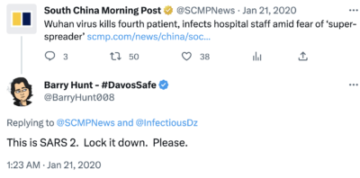
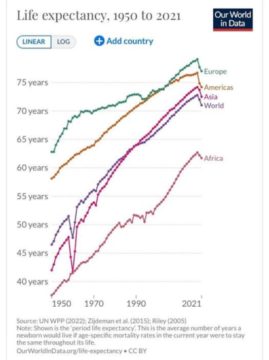 For both covid and climate change, the poor are hit more. Lower income schools are more affected by covid, and hitting 2°C will be a death sentence for much of Africa.
For both covid and climate change, the poor are hit more. Lower income schools are more affected by covid, and hitting 2°C will be a death sentence for much of Africa.
Both affect how we live, today, many succumbing to brain damage from Covid or forcing migration from flooding or drought from climate change. Both lower our life expectancy.
So both should have provoked widespread planetary cooperation and ended all wars, one might think — the way Ronald Reagan predicted an alien attack could provoke immediate world peace as we fought a common enemy. Instead the dominant countries just make sure they can run faster than others, and we all try to adjust to the new normal. We went down the path of, as the watering hole gets smaller, the animals look at one another differently.
For both, the number one predictor of whether or not someone believes the science is where they fall on the political spectrum, despite the fact that the data doesn’t change depending on who’s looking at the CO2 levels. So we end up having to try to prove the problem over and over again to make a case for action.
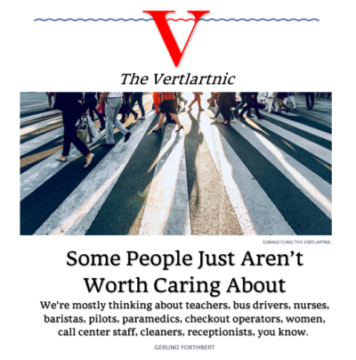 We will do anything to distract ourselves from these two monumental issues, scrutinizing the details (precisely how many have Long Covid or what mean temperature we’ll hit in 20 years with current practicse), or finding someone to blame like the opposition parties or the unions, the government or corporations. Or we start completely unrelated fights, anything that buys us time to make it feel okay to keep doing nothing. Covid seems to have brought an urgency to the fighting and brought out the worst in many, and I wonder how much is orchestrated to keep people fighting each other instead of turning to see who’s pulling the levers. Billy Wilder warned, “If you’re going to tell people the truth, make it funny or people will kill you,” and some trying to warn others of these dangers are being harassed or threatened. It’s only the court jesters, the satirists, who get free reign to speak the truth.
We will do anything to distract ourselves from these two monumental issues, scrutinizing the details (precisely how many have Long Covid or what mean temperature we’ll hit in 20 years with current practicse), or finding someone to blame like the opposition parties or the unions, the government or corporations. Or we start completely unrelated fights, anything that buys us time to make it feel okay to keep doing nothing. Covid seems to have brought an urgency to the fighting and brought out the worst in many, and I wonder how much is orchestrated to keep people fighting each other instead of turning to see who’s pulling the levers. Billy Wilder warned, “If you’re going to tell people the truth, make it funny or people will kill you,” and some trying to warn others of these dangers are being harassed or threatened. It’s only the court jesters, the satirists, who get free reign to speak the truth.
And both may have been stymied with a concern that the public can’t take the truth. Jeremy Deaton wrote in 2018,
“The idea that regular people can’t be told the full implications of climate change is condescending. Scientists, writers and advocates might consider that they go to work every day understanding the enormity of climate change, and yet they are able to do their jobs. The men and women who work on climate change are not made of tougher stuff, and they need not obscure the awful truth about the carbon crisis. People can take it. In fact, they’ll have to.”
Some people have contemplated on what people in future will write when they look back on this period of history. That just makes it clear how hard it is to process a potential end of our species or at least a working civilization complete with a media of some description. The virus won’t do us in completely, but a dramatic rise in global mean temperature very well might. It won’t destroy the planet, of course, just us, and we’ll take most of the bigger mammals with us. We’re doing a number on the oceans already.
Where are all the mums and dads and grandparents outraged at children being tossed under a bus, allowed to suffer in future because it would be too expensive or disruptive otherwise? There are a few small groups here and there, but few people taking to the streets.
Climate change and covid are strikingly similar in that we won’t act enough because the measures we need to take collectively to make for a better tomorrow will be too much of an inconvenience for us to continue to enjoy today. We need to convince legislators to mandate protections and shut down fossil fuel extraction, and that will mean wearing a mask and then don’t board a flight for your next vacation because pleasure flights create too many GHGs.
Like Covid, climate change requires a layered approach. We can’t fix the situation with renewables alone. We also have to cut back on consumption of all types, which is no fun. And the richest countries and households have more of an effect and more to lose. “Wealthy nations should be aiming to reduce emissions by 75% by 2030.” We’ve gotten used to many conveniences that we can’t expect to continue if we want our children to have food and water security. Much of this is out of our hands, but not all of it, and the efforts we need to make don’t harm anyone, they just reduce the number of fun things we do. From another perspective, they merely change the way we enjoy ourselves.
Kant recognized, even back in the day, that most people have a degree of misology, a hatred of reason, because it just brings them misery. If we take a look around, unreasonable people are happier. He concludes from this observation that “our existence has a different and far nobler end, for which, and not for happiness, reason is properly intended.” Since we clearly don’t have this incredible prefrontal cortex to give us happiness, then it must have been gifted to us for another purpose: to have a good will, to be good people.
Unlike Joel Miller, we don’t have a brutal moral conundrum to face, either save the person we love or save the masses; we can do both at once with minimal effort!! We don’t need a big shoot out; we just need to collectively buy less, travel less, use less energy, eat less meat, wear a respirator, clean indoor air, and petition the government to work for the people. Our season finale could be a horror show starting with fighting in stores over food, then lining up for rations, then scrounging to exist. Kill or be killed tomorrow so that we can have more fun today. Or it could be pretty boring: people just using only what they absolutely need and working to protect themselves and others interdependently instead of cooking in a soup of virus variants while the forests burn.
It’s so easy, yet so unlikely because it depends on a critical mass of people, including elected officials, using reason, and most of us hate that!
Hopefully the comedians and satirists will keep us sane, and there will be music to play us out.

